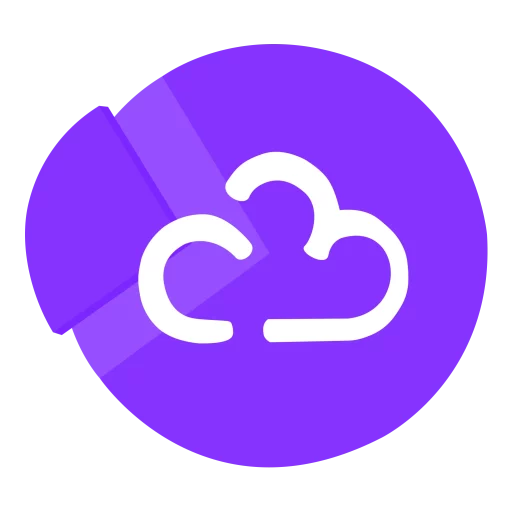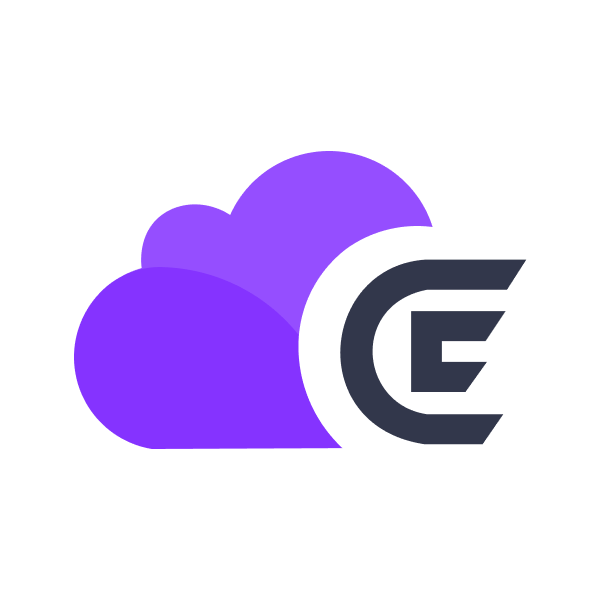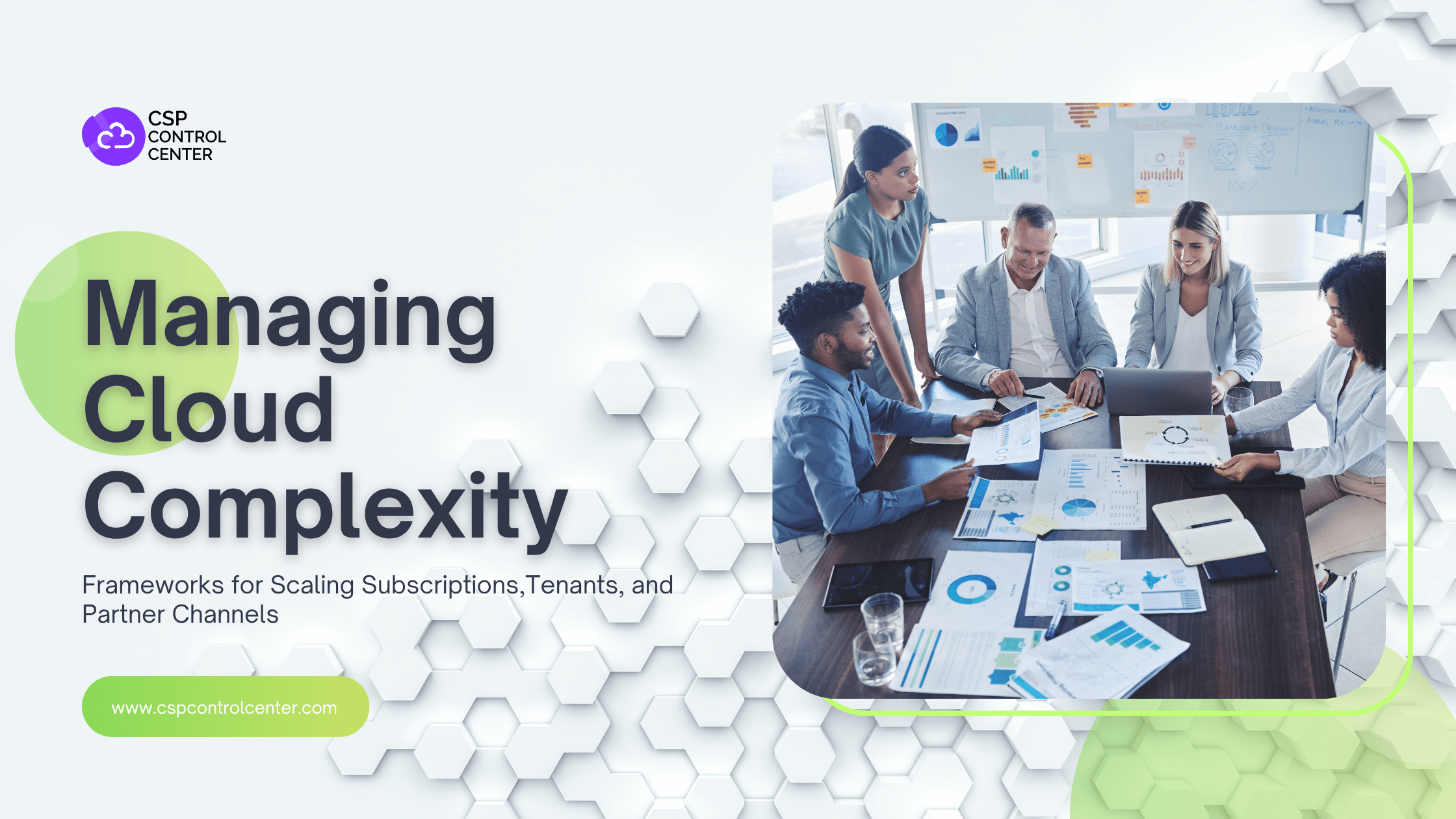“Tips for tailoring cloud solutions to industries like healthcare, finance, and education for targeted growth.”
The cloud computing landscape is rapidly evolving, driven by technological advancements and the growing demands of businesses for more scalable, secure, and efficient solutions. As the competition in the cloud market intensifies, standing out from competitors is essential for success. Catering to specific industries is a powerful way for Microsoft Cloud Solution Providers (CSPs) to differentiate themselves and capture a larger market share. As a Microsoft CSP, you are uniquely positioned to address this demand as you can access Microsoft’s comprehensive suite of tools, advanced technologies, and extensive partner ecosystem. By managing end-to-end customer relationships, you gain invaluable insights into your customers’ specific needs, pain points, and business goals. This holistic understanding allows you to tailor solutions that are not only technically robust but also aligned with the unique challenges and regulatory requirements of different industries.
Why Industry-Specific Solutions Matter
As businesses undergo digital transformation, one-size-fits-all solutions are no longer sufficient to meet their evolving needs. Today’s businesses demand cloud services that not only meet their technical requirements but also understand the unique challenges and nuances of their specific industries. Industry-specific solutions allow businesses to address their pain points more effectively, streamline their operations, and achieve better results compared to generic approaches.
Healthcare, finance, and education are prime examples of sectors where you can provide meaningful value to customers by developing industry-specific solutions. By tailoring cloud solutions to these industries, you can not only differentiate yourself from competitors but also build stronger, long-lasting customer relationships, enhancing trust and loyalty.
Understanding Vertical Needs
Vertical markets have distinct characteristics that require specialized approaches. To deliver value to your customers you must tailor their solutions to address the specific challenges, regulations, and workflows of key verticals like healthcare, finance, and education. By understanding the distinct needs of each sector, you can offer innovative tools and services that drive efficiency, ensure compliance, and create lasting customer relationships.
Healthcare
Healthcare organizations deal with patient data, which is highly sensitive and governed by regulations like HIPAA. As these organizations generate large volumes of patient data, managing this data and integrating legacy systems with modern applications becomes quite complex. For this sector, you need to invest in solutions that provide robust encryption and access controls to protect patient information and are scalable. Interoperability is also essential to enable seamless data sharing among healthcare providers, enhancing collaboration and improving patient outcomes. Microsoft Cloud for Healthcare is a comprehensive suite offering tools for patient engagement, care management, and analytics while ensuring compliance.
Finance
The finance industry has to operate under tight scrutiny and adhere to regulations like GDPR (for data protection), PCI DSS (for payment card security), and SOX (for corporate accountability). In addition, they must take care of operational efficiency while managing real-time transaction processing at scale. These institutions are constantly under threat of cyber-attacks and need solutions that are reliable and offer advanced threat detection, intrusion prevention systems, and end-to-end encryption to safeguard customer assets and data. For this customer segment, Microsoft Sentinel, a scalable, cloud-based security platform designed for security information and event management (SIEM) and security orchestration, automation, and response (SOAR) functionalities is suitable. It provides advanced threat detection, investigation, and response tools, along with proactive hunting capabilities
Education
The education sector is undergoing a digital revolution with an increased focus on remote learning. Educational institutions need tools that foster collaboration, promote personalized learning, manage digital resources, and ensure student privacy. You must prioritize solutions that emphasize accessibility, usability, and security. Analytics tools can be leveraged to track student performance and resource utilization further enhancing the value of these offerings. Microsoft Teams for Education enables effective remote learning, streamlines classroom management, and enhances resource sharing. Azure for Education offers powerful tools and resources to empower educational institutions, educators, and students. Tools like Azure Machine Learning can be used to create personalized learning experiences for the students.
Market Trends
The cloud adoption rate in these industries is accelerating, the global healthcare cloud computing market is projected to expand significantly, increasing from $53.8 billion in 2024 to $120.6 billion by 2029, with a compound annual growth rate (CAGR) of 17.5%. This growth is driven by several key factors, such as the rising use of electronic health records (EHR), e-prescribing, telehealth, mobile health (mHealth), and various other healthcare IT solutions, as reported by MarketsandMarkets.
As per research by Future Market Insights, the finance cloud market is set to expand at a notable CAGR of 11.8% from 2023 to 2033, driven by the financial sector’s increasing reliance on cloud technologies for improved efficiency and transparency. The market, valued at USD 42 billion in 2023, is forecasted to grow to USD 128 billion by 2033.
A study by Verified Market Research found that cloud computing in the education market was valued at USD 28.15 billion in 2023 and is anticipated to grow to USD 98.12 billion by 2031, exhibiting an impressive CAGR of 16.97% between 2024 and 2031. The increasing demand for virtual classrooms and online learning platforms is driving the growing popularity of cloud computing in education.
The rising adoption of cloud technologies across industries like healthcare, finance, and education demonstrates a growing demand for vertical cloud solutions. As industries increasingly seek cloud technologies that cater to their specific needs—whether it’s managing patient data in healthcare, improving financial transparency, or enabling online learning in education, there is a huge potential for customized cloud offerings.
The Importance of Vertical Solutions for Microsoft CSPs
In an increasingly competitive cloud market, standing out from the crowd requires more than offering generic solutions. Vertical solutions not only help Microsoft CSPs meet customer expectations but also create opportunities for enhanced competitiveness, customer retention, and revenue growth.
Increased Customer Value
Vertical solutions help you to address your customers’ challenges directly, offering tools and services tailored to specific industry requirements. When you exhibit a deep understanding of the customer’s challenges and requirements it fosters trust and satisfaction. By offering tailored solutions, you demonstrate not only technical capability but also a commitment to understanding and solving industry-specific problems.
Enhanced Competitiveness
The cloud market is crowded, and offering specialized solutions can help you differentiate yourself from generic cloud providers. Becoming the go-to provider for a specific industry showcases expertise and credibility to potential clients and establishes a strong market position. For instance, financial institutions may hesitate to work with generalist providers, fearing gaps in regulatory compliance or security. However, a CSP with proven experience in serving the financial sector, backed by references and case studies, can position itself as the go-to partner.
Revenue Growth Opportunities
Offering specialized services, such as industry-specific consulting, implementation, and managed services, can open up new revenue streams. It also gives you a chance to expand into new markets and capture a larger share of the overall cloud market. Specializing in vertical markets often comes with the ability to command premium pricing. Customers are willing to pay more for tailored solutions that address their unique needs and reduce risks. This approach also leads to increased opportunities for upselling and cross-selling and allows you to increase the average contract value by bundling complementary services with core cloud offerings.
Common Challenges in Vertical Solution Selling
Selling vertical-specific solutions can significantly enhance a CSP’s market position, but it comes with its own set of challenges. From navigating stringent compliance requirements to overcoming resistance within industries and balancing customization with scalability, you must adopt strategic approaches to ensure long-term success in vertical markets.
Navigating Compliance Complexities
One of the biggest obstacles in vertical solution selling is compliance with industry-specific regulations. Failing to meet these requirements can result in hefty fines, reputational damage, and lost business opportunities. The ever-evolving nature of these regulations adds to the complexity, requiring you to stay updated constantly. Additionally, integrating compliance into technology solutions often creates bottlenecks during solution development and implementation.
Addressing Industry Resistance
Certain industries resist adopting new technologies due to concerns about disruption, cost, or the complexity of integrating with existing systems. In industries like healthcare, concerns about patient care during implementation phases or in finance, the fear of transaction delays can lead to hesitation. Organizations often struggle with limited technical knowledge, which further increases their hesitation around adopting complex solutions.
Balancing Customization and Scalability
Tailoring solutions to meet specific industry needs is important, but excessive customization can lead to inefficiencies and challenges in scaling. Insufficient customization can fail to address the distinct pain points of the target industry and over-customization can make solutions expensive and difficult to replicate for other customers and limit broader market applicability.
Key Strategies for CSPs to Succeed in Vertical Markets
To succeed in industry-specific markets, you need to offer more than just generic cloud solutions. As a Microsoft CSP, you need to understand industry-specific needs, develop tailored solutions, and position yourself as a trusted partner. Here are key strategies to succeed in vertical markets.
Deep Industry Research
Conduct detailed research to identify industry-specific pain points, regulatory requirements, and technological trends. Understanding the unique demands such as data security and compliance with HIPAA regulations for the healthcare industry or the need for real-time fraud detection and secure transactions for the finance sector allows you to create solutions that resonate with these industries. To make your research more effective, analyze competitor offerings and identify gaps in existing solutions. This will help position your products more effectively and differentiate yourself in a crowded market.
Develop Industry-Specific Expertise
If you are looking to specialize in vertical markets, you need to invest in developing domain expertise. Customers are more likely to trust CSPs who demonstrate industry-specific expertise. You can invest in industry-specific training programs and certifications to build expertise in specific industry verticals. Industry certifications help establish you as knowledgeable and reliable further enhancing credibility. You can also hire professionals with vertical market experience and create dedicated vertical solution teams to cater to specific industries.
Market and Sell Vertical Solutions Effectively
Effective marketing is crucial for reaching your target audience in vertical markets. Craft targeted campaigns that highlight how their solutions address specific industry challenges. Case studies, testimonials, and success stories can help build credibility and trust. Create industry-specific sales enablement resources and your sales teams should be trained to communicate the unique value proposition of tailored solutions effectively. You should also participate in industry events, webinars, and forums to promote your solutions and connect with potential customers. To learn more about selling effectively, read our blog on How to navigate sales conversations as a Microsoft Cloud Solution Provider.
Utilize a Robust Billing Solution
Different industries often have unique invoicing, pricing, or payment requirements. You need to manage these billing complexities while maintaining accuracy and transparency. A Microsoft CSP billing solution can offer the billing flexibility needed and help streamline operations, reduce errors, and enhance customer satisfaction.
Industries like healthcare may require billing solutions that accommodate various service tiers. Educational institutes may demand flexibility to account for seasonal usage spikes, such as increased activity during certain periods. Financial organizations, on the other hand, may require detailed transaction records and adherence to stringent auditing standards.
Deliver Ongoing Support and Training
Ongoing support and training are essential for fostering long-term relationships and ensuring that the vertical solutions deliver value. Post-sale engagement helps customers adapt and get the most out of the solutions. Long-term relationships often lead to repeat business and referrals leading to revenue growth. Offer comprehensive onboarding sessions to your customers with tailored content for different user roles within the organization. Assign dedicated support teams that understand the customer’s industry needs and offer assistance through various channels like email, chat, phone, and a self-service knowledge base. Schedule regular check-ins and notify customers about new features, compliance changes, or updates periodically. Further, use customer feedback to refine training programs and support processes.
Leverage Microsoft’s Partner Network
Microsoft’s partner ecosystem can help you scale your operations and create tailored industry solutions. The partner network provides access to a variety of resources, including specialized training, certification programs, and co-selling opportunities. These can help enhance your expertise and expand your market presence. Collaborate with other Microsoft partners to create more robust and comprehensive offerings. For example, you can collaborate with a cybersecurity partner to address advanced security and compliance challenges for customers in the finance sector. You can also partner directly with Microsoft on go-to-market strategies, to gain access to a broader customer base and benefit from shared marketing and sales efforts.
Offer Value-Added Services
Beyond core offerings, you can differentiate yourself by providing additional services that enhance customer value. You can provide additional services such as consulting, training, analytics, and managed services. Each of these services addresses unique challenges that core solutions might not fully resolve. These value-added services can not only increase revenue opportunities but also position you as a strategic partner rather than just a solution provider. If you wish to build a Managed Services Practice, read our blog to know more.
Unlock Industry-Specific Growth with C3
Empower your business to excel in industry-specific markets with seamless billing and payment automation. CSP Control Center or C3 is the ultimate solution for managing complex billing needs across industries like healthcare, finance, and education.
Whether it’s ensuring compliance with industry-specific regulations, managing detailed invoicing, or accommodating seasonal spikes in usage, C3 simplifies your operations while boosting customer satisfaction.
Why Choose CSP Control Center?
- Customized Invoicing for Vertical Markets- Tailor invoices with industry-specific templates and details to meet regulatory and operational needs.
- Effortless Compliance Management- Navigate complex regulatory requirements effortlessly with automated tax calculations and audit-ready records.
- Scalability Across Industries- Expand into new verticals without worrying about billing complexities.
- Superior Customer Experience- Offer transparent, error-free billing that builds trust and long-term loyalty.
- Cost Optimization- Eliminate manual errors and reduce operational costs with end-to-end automation.
Get in touch to discover how C3 can tailor billing automation and payment solutions to meet the unique needs of vertical markets.

 CSP Control Center
CSP Control Center
 CloudEvents
CloudEvents


